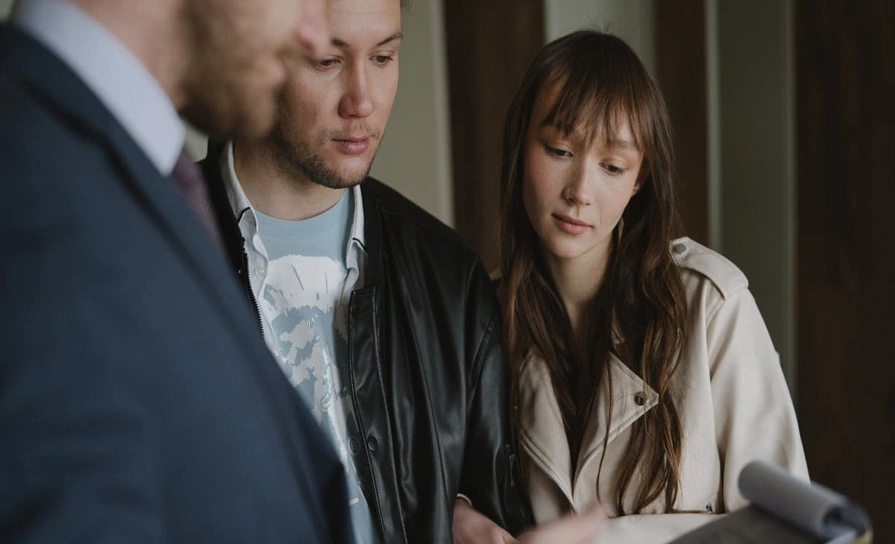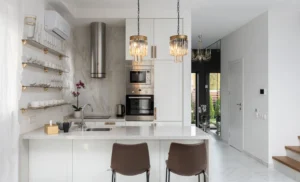If you’re looking to open a safe deposit box it’s important that your bank doesn’t look inside. Banks are not allowed to open your safe deposit box unless you give them the proper paperwork.
But if you’re just curious about what’s in your box, there is no law that says you can’t look at it. The bank can search your safe deposit box and make copies of the contents. The U.S. government cannot enter your safe deposit box without a warrant. Federal law prohibits the bank from opening your safe deposit box unless it’s by court order, or if you yourself are a criminal.
If you live in a state that doesn’t have a law on the books like this one, then the bank would most likely open your box without any notice because they already have a key. One of the most common questions a locksmith will hear is about what happens if a customer has to get a key for their safe deposit box.
The best answer to this question is that the bank will only be able to look in your safe deposit box if you tell them that you trust them with your safe deposit box. If you don’t trust the bank, then they won’t be allowed to open it without your permission.
The bank has the right to open your safe deposit box for safety. If your safe deposit box is missing or damaged, you may have trouble gaining access to the contents of your safe deposit box, so you should provide detailed information about the contents of your box.
Banks can open your safe deposit box without your knowledge or permission if a designated employee has the correct credentials. If you’re concerned that they might open it without your consent, make sure to avoid placing anything too valuable in your safe deposit box.
Can a safe deposit box be traced?
In a professional setting, your company’s safe deposit box can be traced and will only provide up to 5 years worth of information. You can do this by having a forensic expert track the serial number on the lock and enter it into a database that shows all the manufacturers of that particular lock.
A private individual cannot trace your safe deposit box, so you don’t need to worry about anyone but yourself. Some people might think it’s possible to trace a safe deposit box, but in reality, it’s very difficult. The safe deposit boxes are located at different banks and are only about one inch wide.
To find the information for a particular box you would need to find the name of the bank it was at and then search for that bank online. A safe deposit box is a secure place to store your valuables. In order to protect your possessions, decide on a secure location for your safe deposit box before you take it out.
You don’t want to keep the key taped in the box because unscrupulous people may steal it or use it to access the contents of your safe deposit box. A safe deposit box can be traced, and while it may not affect the security of the box itself, it could lead to a problem.
If someone is trying to track you down, they may try to trace your assets by finding out what’s in your bank or safe deposit box. In this case, you should either hide your assets or change the names on them before someone starts looking for them. Most people don’t realize that a safe deposit box can be traced, but it’s true.
If you have an old safe deposit box that’s been inactive for an extended period of time, it might be worth your while to contact the bank and see if you can get a new one instead. The safest way to store your valuables is to keep them in a safe deposit box.
But what if you ever need the contents from it? Most companies will be able to find your box and retrieve what is inside. If you want to be sure that the contents can’t be traced, consider renting a safe deposit box elsewhere.
Is a safe deposit box traceable?
If a safe deposit box is opened, and you have been storing items of value within, it is important that you take steps to make sure that your valuables are not easily accessible to anyone else. In order for the law enforcement to find out the date of access or the identity of the person who accessed the box, they will need a subpoena or warrant.
Just because there are tracking options available on a safe deposit box, this does not mean that your items inside the box are being tracked. The method of opening these boxes varies, and you can use a combination of things like key codes and personal identification numbers to open them if they are synthetically locked.
If a safe deposit box is opened through natural means, then your items will be traceable as well. If you have valuable items in your safe deposit, it’s important to know that they are not traceable after the locksmith completes its job.
All personal information is removed and replaced with random numbers and letters. A safe deposit box is a place where you can store valuables, money, or other personal items. Some people use them to hide things from their significant other or children; others use them in extreme situations – such as the case of a natural disaster.
There is no way to know for certain if the lock you have has alarm protection. A safe deposit box typically includes several additional layers of security, including a time lock and a sophisticated locking mechanism that may require a code or fingerprint identification.
A safe deposit box is a small, usually metal, container that can be locked and kept under the owner’s control. Many people use them to store important documents and valuables. If you are the owner of a safe deposit box, it is possible for someone else to open the box without permission, unless there is a traceable lock on it.
Is it safe to keep cash in a safe deposit box?
If you keep cash in a safe deposit box, it may be possible for the bank to access your accounts by using an ATM or following your financial transactions. There are a lot of reasons why it is unsafe to keep cash in a safe deposit box. The first is that there is no way to know if the safe deposit box was tampered with.
The next reason is that banks can’t make any money off of people putting their cash in a safe deposit box, so they usually charge customers for renting one. Finally, your funds could be stolen by someone who has access to the bank’s records and knows which boxes should have cash inside them.
There are many factors to consider when deciding whether it’s safe to keep cash in a safe deposit box. For example, if you live in an apartment building, there may be rules against keeping large amounts of money that is easily accessible. However, the safest option is to store cash in a bank account.
There are other banks that offer a safe deposit box without having an account. Many people keep their cash in a safe. Along with the money, they may also keep other valuables like jewelry and old pictures. However, there are some safety concerns about keeping items that could be stolen in a safe deposit box.
Cash is not always kept inside a safe deposit box, but many banks require customers to store their valuables in a locked box that can only be accessed by the customer. If you own a safe deposit box with a private bank, it is important to keep your cash in there and not take it out.
It’s best to keep the cash in the bank to avoid being robbed or having your money stolen from a safe. When you are storing large amounts of cash, it is always a good idea to keep them in a safe. That way, you’ll be able to get your hands on that money when you need it rather than having to wait for the bank or someone else to bring it back to you.
However, if for some reason you have the urge to put your money into a safe deposit box, that might not be the best decision.
Are safe deposit boxes monitored?
Safe deposit boxes are monitored to make sure they’re properly used and the person who owns them is keeping the items in them. Sometimes these boxes have sensor-equipped cameras that send a live feedback to the bank, sometimes with audio. The bank sometimes gives you a PIN that allows you to access your box remotely and check on it as well.
Security and safety of our valuables is one of the most important things to think about. Everyone should keep a safe deposit box in their home as part of their overall security and safety strategy.
Your safe deposit box should be located in a private place with solid walls, lockable doors, and other standard security features. If you are concerned that your safe deposit box might not be secured properly or monitored by a trusted third party, then you should consider using a lockbox service like LockSmith Service.
Safes are great for storing and protecting your valuables, but if you’re not careful, you could be robbed of what’s in your safe. A good rule of thumb is to never store anything valuable without the protection of a security system. One option that comes with many safes is the key lock box. If there is a key in it, someone would need to break into the safe to get it.
A safe deposit box is a relatively easy and convenient way to store your valuables. With these boxes, you can leave things for up to 60 days with no questions asked. So what could go wrong? Well, nothing’s perfect, but there are several steps that you should take to make sure your valuables remain safe.
One of them is not trusting the delivery service that comes when you request the safe deposit box. For example, if you’re concerned about a delivery service being used in an illegal manner or if it simply doesn’t seem credible enough, shopping around for a different company may be worth it.
With technology becoming a large part of our lives, it’s important to make sure that your most private possessions are safe. Safe deposit boxes are one of the best ways to do so. These metal boxes are designed exclusively for the storage of valuables and are housed in banks and other financial institutions around the world.
They’re usually located behind a vault door, which is monitored by security staff 24 hours per day. Although there have been some cases of theft, most people feel that safes deposit boxes are still secure enough for their valuables and will continue using them for now.
Most banks will provide a safe deposit box to their clients, so they can store valuables while they are away from their home or office. Banks will not monitor these boxes, and they are not required to be insured by the FDIC. Most people want to know if this is true, but.
They also want to know if the contents of these boxes can be accessed should something happen to them. A common question is whether these boxes are monitored in case of emergency, like natural disasters or robberies.






